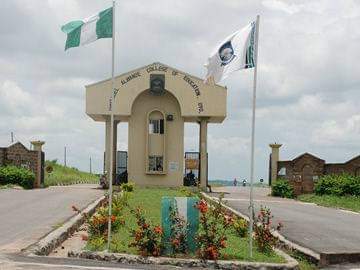Last week Thursday, precisely the 11th of November, 2021, a significant number of students were ejected from examination halls at Emmanuel Alayande College of Education, Oyo. Invariably, they were denied the right to sit for the second semester examination.
The rationale behind the deprivation was the inability of the students to pay their tuition fees. Customarily, students are under financial obligations to pay a pre – determined amount of money as tuition. Tuition fees are paid twice per annum.
Tertiary education is not free in Oyo state. This is unlike primary and secondary schools. Both elementary and secondary education are tuition-less; courtesy of the magnanimity of the Executive Governor of Oyo State, Engineer Seyi Abiodun Makinde. That singular gesture by His Excellency has returned thousands of drop-outs to schools. Very many parents have also withdrawn their wards from private schools to public. Majority of these drop-outs
were hitherto wandering aimlessly in the streets while few were hawking. A significant number had also transformed to urchins and miscreants.
Interestingly, the seemingly shattered hope of the less-privileged students had been rekindled since they now have access to schooling. All adorations to the amiable Governor of Oyo State. May Allah continue to imbue the governor with more wisdom and every impetus needed to succeed.
One of the requisites to becoming a bonafide student in tertiary institutions is the payment of tuition fees. In the past, it used to be the ticket for matriculation. Every successfully – admitted student is expected to fulfil that last requirement of studentship. The payment is mandatory. Non- refundable and non-negotiable.
Meanwhile, due to the precarious situation of our economy and a plethora of unfortunate circumstances, rules are sometimes relaxed in some institutions to accommodate instalment payments. Most often than not, ultimatum were issued for the the payment. However , every defaulter may be susceptible to a penalty in the name of late payment which usually attract extra money.
The above was the situation at the Oyo state-owned ancient College of education when the management barred about forty final – year students from writing a final year paper over unpaid tuition fees of #26,955. The paper was Curriculum Studies with the code Edu 321 and other courses.
From the above, one may be tempted to query the legality of exemption of students from sitting for an examination; the implications of which are enormous.
Tuition fees defaulters who are denied examination would invariably have an extra semester or a year. In this case, they would not be able to graduate with their course mates; no matter their brilianace. This is worrisome.
Like I wrote, the legality and morality of the exemption is questionable. Let us apply logic and discuss as intelllectuals with humane feelings.
The tuition in question is expected to be paid by the students. But have we considered the implication of the deprivation on the future of the students! Earnestly, the punitive measure is weightier than the gravity of the offence. As it is; the students would miss one year. That is to say that they cannot graduate with their mates. Even, if the fees are paid with extra charges. Aside this, they would still need to pay for the extra year by the time they resurface to resit and make up for the loss paper. From this simple analogy, four punishment are starting at their faces: Extra year, #10,000 late payment, payment of tuition for the semester and another payment when they returned after losing a year.
In my opinion, the management should have deviced a means more humane than ejection from examination hall.
For instance, the authority could hold on the release of academic transcripts, grade reports and certificate because of student failure to fulfill their financial and administrative obligations to the college. These obligations may be more than tuition to include education loans, damages or failure to return library books and other indebtedness.
This could be effected during the collection of clearance at the bursary department where the records of payment are kept. Surely, the students would come back for their results.
Apart from the bursary, graduating students are mandated to sign certain documents from their respective departments, schools cum faculties and students’ Affairs Office. This makes it practically impossible for any defaulter to elope with his debt.
I sincerely and respectfully crave for the indulgence of the management of the college to critically look into this issue and do the needful.
Comrade Lekan Badmus is a columnist with Oduduwa News and a public affairs analyst.





